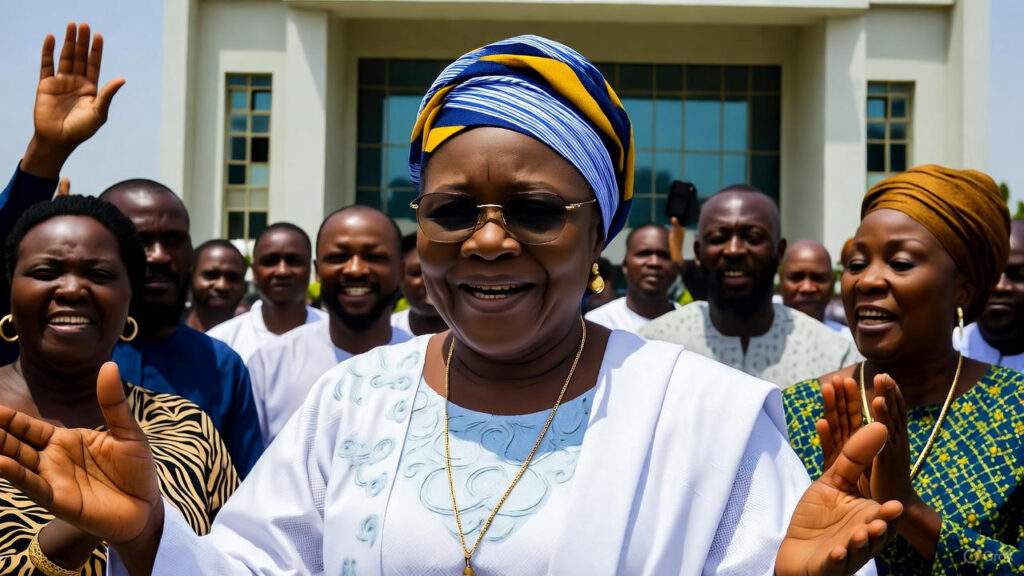First Lady Commissions Health Facilities in Gombe: A Step Toward Stronger Healthcare and National Pride

On October 5, 2025, Nigeria took a significant step forward in strengthening its healthcare infrastructure as First Lady Senator Oluremi Tinubu commissioned the Federal Medical Centre (FMC) in Kumo, alongside other health facilities in Gombe State. This milestone event underscores the government’s commitment to improving access to quality healthcare, particularly in underserved regions, while also serving as a call to reshape Nigeria’s global image and foster national pride.
A New Era for Healthcare in Gombe
The commissioning of the FMC Kumo marks a pivotal moment for Gombe State, a region that has long faced challenges in delivering accessible and quality healthcare to its residents. The new facility, equipped with modern medical equipment and designed to serve as a hub for specialized care, aims to reduce the burden on existing hospitals and bring essential services closer to rural communities. Alongside the FMC, other health facilities unveiled during the event will bolster primary and secondary care, addressing critical needs in maternal health, child welfare, and disease management.
Speaking at the ceremony, Senator Tinubu emphasized the transformative potential of these projects. “Access to quality healthcare is a fundamental right,” she said, highlighting the role of such initiatives in reducing preventable deaths and improving overall well-being. The First Lady’s presence underscored the national significance of the project, signaling a broader push to revitalize Nigeria’s health sector.
A Call for National Pride
Beyond the commissioning, Senator Tinubu used the platform to address a deeper issue: Nigeria’s global reputation. In a powerful statement, she declared, “The era of calling Nigeria the most corrupt country is over.” Her words were a rallying cry for Nigerians to reject negative stereotypes and embrace a narrative of progress and potential. She pointed to growing international interest in Nigeria, noting that “the world is watching us, and they want to invest in our future.”
This message resonates at a time when Nigeria is working to rebuild its image amid economic and security challenges. By tying healthcare development to national pride, the First Lady connected grassroots improvements to a broader vision of a stronger, more respected Nigeria. The Gombe projects, she argued, are not just about buildings and equipment but about showcasing the nation’s capacity for growth and self-reliance.
Why This Matters
The commissioning of these facilities comes at a critical juncture for Nigeria’s health sector. With over 849 non-functional primary health centers (PHCs) in states like Cross River and persistent challenges like cholera outbreaks and Lassa fever, investments in infrastructure are vital. The FMC Kumo and similar projects aim to bridge the gap in healthcare access, particularly in northern Nigeria, where geographic and economic barriers often limit care.
Moreover, the initiative aligns with ongoing efforts to curb medical tourism, which sees an estimated 600,000 Nigerians seeking treatment abroad annually due to gaps in domestic services. By strengthening facilities like the FMC, the government hopes to build confidence in local healthcare systems, retain skilled medical professionals, and reduce the financial strain of overseas treatment.
A Broader Vision for Health and Development
The Gombe event is part of a larger strategy to reform Nigeria’s health sector. Recent efforts, such as the donation of N30 million worth of medical equipment to rural clinics in Osun State and partnerships with organizations like WHO and UNICEF to combat outbreaks, reflect a multi-pronged approach. However, experts continue to call for increased health budget allocations—currently at 5.18% of the national budget, far below the 15% recommended by the Abuja Declaration—to sustain these gains.
Senator Tinubu’s visit also highlighted the intersection of health, security, and grassroots development. By framing healthcare improvements as a national priority, she underscored the need for community involvement and sustained government action to address systemic challenges like vaccine hesitancy, workforce shortages, and inadequate funding.
Looking Ahead
The commissioning of the FMC Kumo and other facilities in Gombe is a beacon of hope for Nigeria’s health sector. It signals a commitment to building a future where quality care is accessible to all, regardless of location or economic status. Yet, the success of such initiatives will depend on sustained investment, effective management, and public trust in the system.
As Senator Tinubu urged Nigerians to take pride in their nation, her words serve as a reminder that progress in healthcare is not just about facilities—it’s about building a healthier, stronger, and more united Nigeria. The world may indeed be watching, but it is up to Nigerians to shape the narrative of a nation on the rise.
- Follow us for more updates on Nigeria’s health sector.

























Comments
This post currently has no comments.